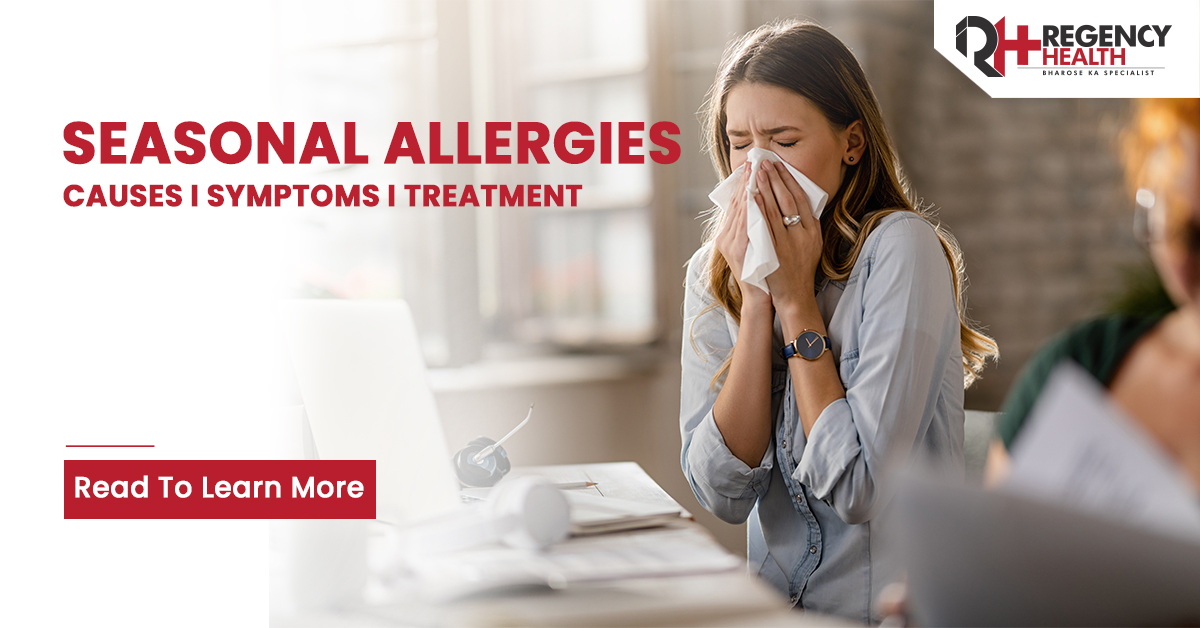
Our immune system produces antibodies to identify and destroy harmful pathogens that can cause us harm. When we come into contact with the allergen, we might experience skin, sinuses, airways, or digestive tract inflammation. This reaction to these foreign elements is also known as allergy.
The impact of allergy on an individual varies from case to case and while it could be just a minor irritation for some, others might experience some life-threatening reactions. There is no cure for many of these allergies but proper medication and preventive care from individuals can help us immensely in countering allergies. The onset of monsoon or spring brings forth certain seasonal allergies which can cause significant discomfort to people.
Seasonal allergies symptoms
Seasonal allergies may vary based on geographical location. In countries in the northern hemisphere, people experience spring allergies which usually start in February and last until summer. One of the main reasons for these allergies is the tree pollination that begins early in the year and is followed by grass pollination in spring and summer followed by ragweed pollination in summer and fall.
For countries in the southern hemisphere, grass pollination happens for a majority of the year resulting in allergies. Plants can also pollinate earlier in the winter when the temperatures are mild and cause allergies. A wet spring can also encourage accelerated plant growth resulting in several allergy symptoms.
You must consult an allergist if you experience frequent colds, coughs, or head congestion. Pollen may seem to be the only thing hurting you, but there may also be other factors at play. The majority of people who experience spring allergies experience symptoms all year long. Seek immediate help and identify the root of your condition rather than just treating the symptoms.
Causes of allergies
Medication
An allergic reaction may be brought on by specific drugs. Herbal, over-the-counter (OTC), and prescription medications may all cause allergies in some people. Typical drugs that trigger allergies include:
-Antibiotics
-NSAID (Non- Steroidal Anti-Inflammatory Drugs)
-Insulin
–Chemotherapy medications
Insect Bites
Injection of venom caused due to insect stings may also lead to allergies. The stinging insects that most frequently induce allergic responses are:
-Bees
-Fire Ants
-Hornets
-Wasps.
Food Allergy
When your body produces a specific antibody in response to a food, food allergies begin to develop. An allergic reaction happens within minutes of ingesting the item, and symptoms could be quite severe which include:
-Body itches (generalised pruritus).
-Itching in a particular area
-Vomiting and nausea
-Hives
-Swelling of the throat, tongue, or face
Diagnosing the allergies
There are various methods to diagnose allergies. Blood testing and skin prick tests are the two most common allergy tests.
Skin prick– The allergens that are responsible for your allergy symptoms can be found via skin prick (scratch) tests. A little amount of various potential allergens will be prickled onto your skin by an allergist using a fine needle. The next step is to see if the allergen causes any skin reactions.
Blood testing – Testing for blood (IgE) is another great way of detecting allergies. Blood tests determine the presence of total IgE antibodies in our body. We can also find out how much of IgE is produced in response to a particular allergen.
Treatment of allergies
Keeping away from factors or conditions that trigger allergy is the foremost step in this direction. While it doesn’t entirely stop allergic reactions, it certainly is a great start. Another option for treating your allergies is to take over-the-counter and prescription allergy drugs. These include:
- Antihistamines
- Nasal Sprays
- Decongestants
- Immunotherapy
Several kinds of medication aid the treatment by gradually exposing you to your allergen over time. One learns to tolerate the allergies as opposed to reacting with sneezing, a stuffy nose, or itchy, watery eyes.
It can be difficult to live with allergies and a person can experience mild to severe symptoms. But if you exercise caution, you can live a happy life. Your healthcare provider might suggest further resources, support groups, and specialists who can help you immensely in battling allergies.

 Call-an-Ambulance
Call-an-Ambulance



